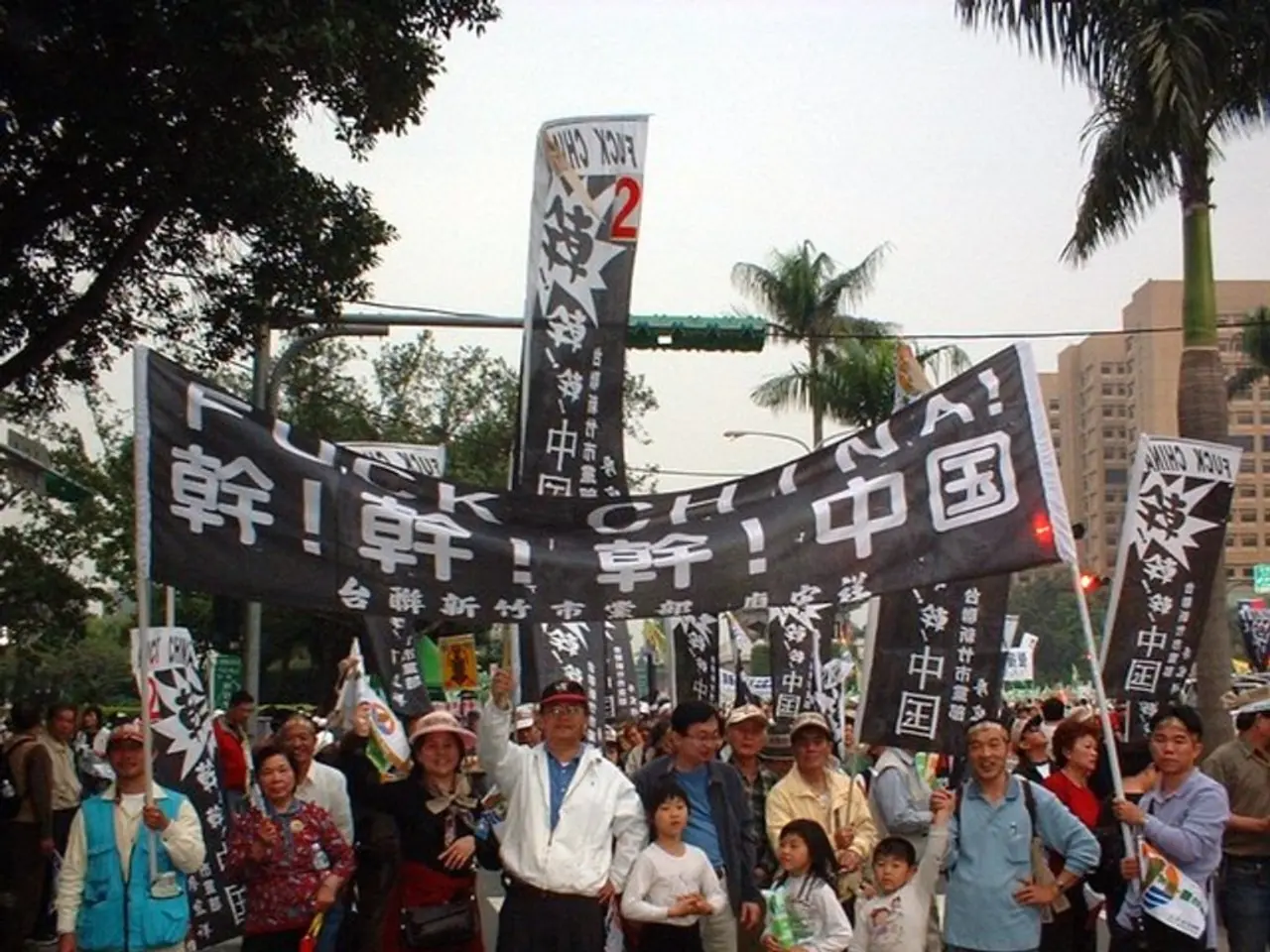Angola sees an uptick in imports
In the heart of Angola, the 40th edition of the Angola International Fair (Filda) took place, marking a significant milestone for the Angola-Portugal Economic Association (AEP) as they celebrated their 13th consecutive participation. This year, Portugal was declared 'Portugal Day' at Filda, symbolising the strong ties between the two nations.
At the event, Paulo de Oliveira, the executive director of the Portuguese Agency for Investment and Foreign Trade (AICEP), addressed the audience, emphasising the challenges and high operational costs in Angola. Despite these difficulties, he expressed his belief that Angola remains a promising destination for Portuguese companies.
One such company is Cacicambra, who confirmed their return to Filda after a brief hiatus. Susana da Silva, the administrator of Cacicambra, expressed optimism about the growth opportunities in Angola's private security sector. Exports to Angola by Cacicambra have been consistent for over two decades, and they see this shift as a promising opportunity.
Another company, Lacto Serra, has been exporting to Angola for four years. At Filda, they aimed to consolidate their business and seek new opportunities. Portugal was represented by 15 companies at the fair, from sectors such as metalworking, food products, and construction.
The AEP highlighted the growth in economic relations between the two countries as a "clear sign" during Filda. In recent years, Portugal has increased its credit line extended to Angola by €750 million, bringing the total available credit for Portuguese companies to invest in Angola to around €3.25 billion. This financial support is aimed at sectors including infrastructure, energy, education, and health, enabling Portuguese firms to expand their activities and investments in Angola.
The relationship between Portugal and Angola is reinforced by strategic cooperation initiatives involving Portuguese institutions such as the Camões Institute, Porto Business School, and AIPEX. These partnerships facilitate training and capacity building, helping companies navigate Angola's market and promote diversification beyond oil exports.
Miguel Espírito Santo, the commercial director of Lacto Serra, mentioned their growth and investment in the Angolan market. Similarly, José Botelho, the manager of Ventisec, expressed their readiness to face challenges and invitations in the Angolan market. Ventisec, an agro-industrial firm, has been present at Filda since 2018, aiming to identify new customers.
The number of Portuguese companies that attended this year is similar to the previous edition, but overall participation has decreased compared to earlier years. However, many Portuguese companies that once shared the space under the Portuguese pavilion are now strong enough to exhibit on their own with other products.
In conclusion, Portuguese companies have increasingly penetrated Angola’s market, supported by enhanced credit lines, multi-sector cooperation agreements, and institutional partnerships that promote investment, innovation, and diversification of Angola's economy. This evolution reflects a transition from historical links to a mature strategic economic partnership.
Susana da Silva, administrator of Portuguese company Cacicambra, expressed her optimism about the growth opportunities in Angola's private security sector, with exports to Angola by Cacicambra having been consistent for over two decades. Lacto Serra, another Portuguese company, has been exporting to Angola for four years and aimed to consolidate their business and seek new opportunities at the Angola International Fair (Filda). The relationship between Portugal and Angola is reinforced by strategic partnerships that facilitate training and capacity building, enabling Portuguese firms to expand their activities and investments in Angola. This evolution reflects a transition from historical links to a mature strategic economic partnership.




